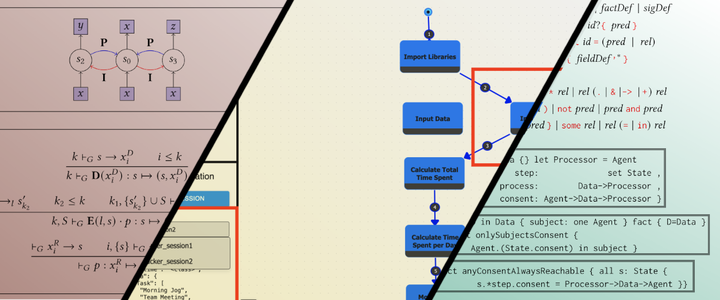3 Papers Accepted at SPLASH 2024

Members of the Complex Cyber Infrastructure group have been hard at work on the topic of software languages, developing methods and tools improving the productivity and control of programmers and language-designers. The latest contributions are being published in three articles, which will each be presented at SPLASH 2024 in Pasadena, California. Each contribution provides a piece of the puzzle of developing large and complex software systems:
- Bridging Incremental Programming and Complex Software Development Environments
- to be presented at PAINT
- by Max Boksem and Thomas van Binsbergen
- Summary: This article characterises and demonstrates a fundamentally graph-based programming environment: programs are built from explicitly-linked parts. This approach has benefits from two different, existing kinds of programming environment, which together make program parts easier to maintain and re-use.
- Links: DOI and PRE-PRINT.
- On the Soundness of Auto-completion Services for Dynamically Typed Languages
- to be presented at GPCE
- by Damian Frölich and Thomas van Binsbergen
- Summary: This article presents a novel mechanism for code editors to assist programmers by auto-suggesting identifiers. The novelty is that suggestions are based on an analysis of the program that is shallow enough to be fast and language-agnostic, but deep enough to guarantee suggestions are always valid.
- Links: DOI and PRE-PRINT.
- Cooperative Specification via Composition Control
- to be presented at SLE
- by Christopher Esterhuyse and Thomas van Binsbergen
- Summary: This article presents a framework for using specification languages in a context where the specifications are developed from parts by cooperating agents. Some language features that are useful for this purpose are identified, and used to improve three existing specification languages
- Links: DOI and PRE-PRINT.
- part of the AMdEX project.